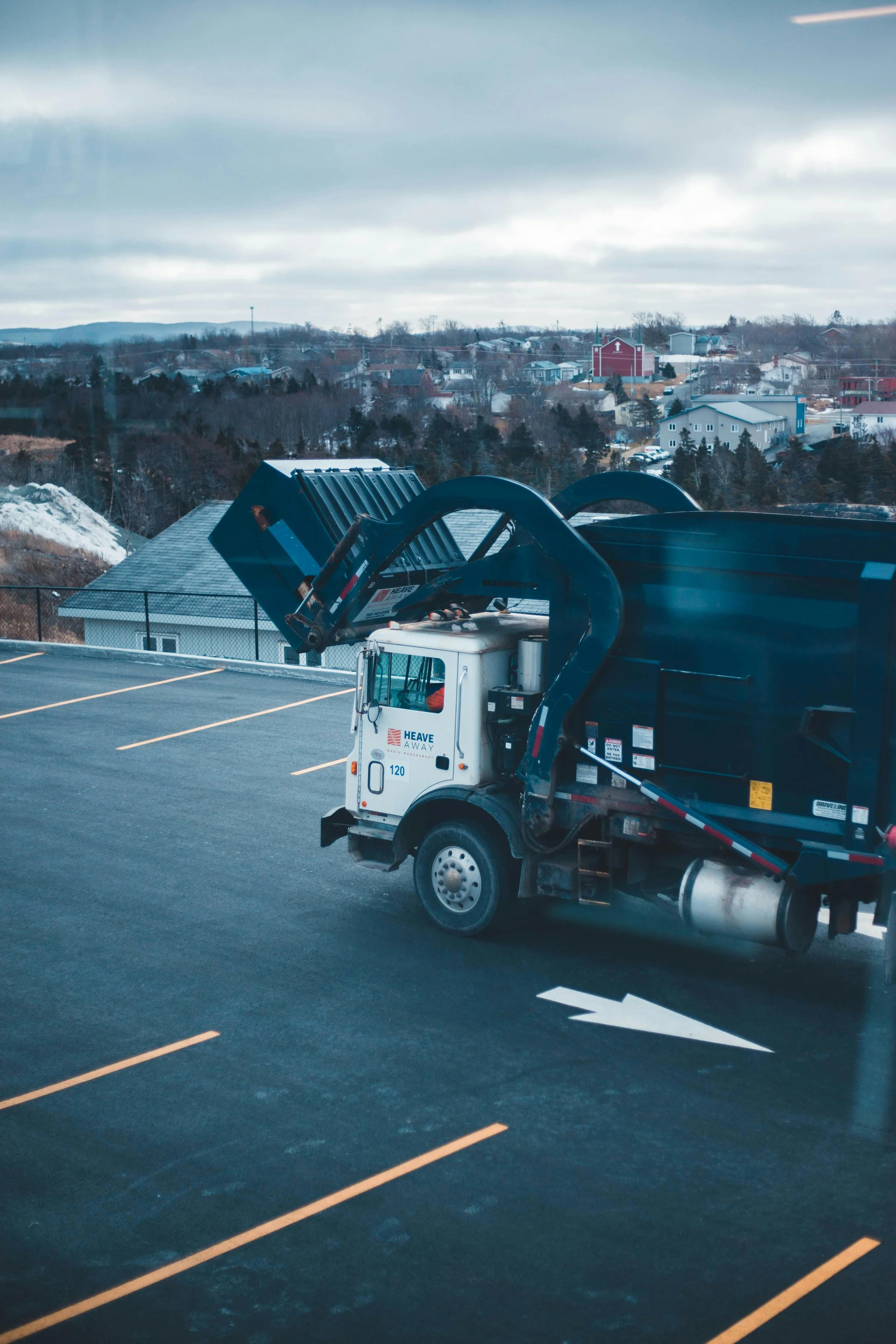Supporting County Councils in Meeting Ireland’s 2030 Construction Waste Targets with Hub360
Ireland is on a journey towards a circular economy, and the National Waste Management Plan for a Circular Economy 2024–2030 plays a crucial role in shaping this transformation. A major aspect of this plan is the implementation of robust monitoring and reporting mechanisms to track progress towards construction and demolition (C&D) waste reduction and recycling targets, ensuring transparency and accountability.
County councils across Ireland are tasked with executing these measures within their jurisdictions, working closely with national and EU regulatory bodies. These efforts are essential in driving Ireland’s construction waste management practices forward and aligning them with the highest environmental standards.
Insights from CIF Report: The Role of Digital Tools in Construction Waste Management
The "Supporting the Circular Economy Transition in the Irish Construction Sector" report by the Construction Industry Federation (CIF) highlights the growing role of digital tools in waste tracking. Section 3.2: Digital Innovations in Waste Tracking (Page 28) emphasises how advanced technologies can revolutionise the way construction and demolition (C&D) waste is managed, ensuring compliance with Ireland’s 2030 circular economy targets.
As Ireland moves towards stricter waste management regulations, the integration of digital solutions is no longer optional—it is an essential strategy for tracking, optimising, and reporting waste in real time. Digital innovations enhance efficiency, reduce landfill dependency, and help construction firms meet regulatory obligations while cutting costs.
Future-Proofing Construction: How Data-Driven Waste Management Can Give Your Company a Competitive Edge in Public Sector Projects
Ireland’s public sector construction projects are evolving, with sustainability and environmental compliance becoming major factors in awarding contracts. With strict waste reduction targets set for 2030, construction firms collaborating with government agencies need to ensure their waste management practices align with national and EU directives.
For companies aiming to secure more public sector work, staying ahead of regulatory requirements and demonstrating a commitment to sustainable waste management is no longer optional—it’s a competitive advantage.
Where Did Ireland’s "Missing" Construction Waste Go?
Fluctuating Waste Figures Raise Red Flags
The Numbers Don’t Add Up
2012: Ireland generated approximately 9 million tonnes of C&D waste.
2021: The country reported 9 million tonnes of C&D waste again.
2022: This number dropped to 8.3 million tonnes, with soil and stones making up 85% of this waste.
Addressing Construction Waste: EEA’s Push for Circular Economy Practices
The European Environment Agency (EEA) has identified a critical issue within the EU’s construction and demolition waste (C&DW) management. Despite boasting high recovery rates, a significant portion of this waste is subjected to low-grade recovery operations like backfilling. To tackle this challenge and enhance the quality of recycling and reuse, the EEA is championing the adoption of circular economy practices across the construction sector.
Navigating the Environmental Crime Directive: Key Takeaways for the Construction Industry
In April 2024, the European Parliament adopted Directive (EU) 2024/1203, widely referred to as the Environmental Crime Directive. Effective as of May 20, 2024, this groundbreaking legislation significantly bolsters the European Union's approach to environmental protection through criminal law. By expanding the list of offenses, introducing harsher penalties, and emphasizing accountability at all organizational levels, the directive underscores the importance of sustainable practices across industries—with the construction sector being no exception.
Transporting Treated Sludge Cake: Challenges and Solutions for the Waste and Agriculture Sectors
Transporting treated organic sludge cake (biosolids) is a critical process for wastewater treatment plants, waste management companies, and agricultural contractors. Whether the sludge is destined for agricultural land, composting, or landfill alternatives, ensuring safe, efficient, and compliant transport is paramount.
Here’s an overview of the transport requirements for treated sludge cake, the challenges involved, and how Hub360 simplifies the process.
Obligations of Developers and Contractors in Construction and Demolition Waste Management
Developers and contractors have a vital role in managing construction and demolition (C&D) waste, and they must adhere to several specific legal obligations to ensure compliance with environmental regulations. Here’s an overview of their key responsibilities:
Understanding the Waste Recovery Levy: What Developers Need to Know
In 2024, the Irish government introduced new regulations known as the Circular Economy (Waste Recovery Levy) Regulations. These rules are set to significantly impact how construction and demolition (C&D) waste is handled and could bring about additional costs for developers. If you’re a developer, it's essential to understand the implications of this levy so you can manage your projects and budgets effectively.
Waste Management Responsibility for Local Authorities Under the Circular Economy Act 2022
The Circular Economy and Miscellaneous Provisions Act 2022 places significant responsibilities on local authorities when they manage infrastructure or construction projects. Just like private developers, local authorities are classified as the waste producers for any project they oversee, meaning they bear full legal responsibility for managing waste in compliance with strict environmental regulations.
The Circular Economy and Construction Waste: Are You Aware of Your Responsibilities?
The Circular Economy and Miscellaneous Provisions Act 2022 has brought significant changes to how the construction industry in Ireland must manage its waste. Despite this, many in the sector seem unaware of the substantial legal responsibilities now placed upon them. If you are a contractor, subcontractor, or part of the broader construction industry, it’s time to take note: you are responsible for the waste generated from your projects, and where it ends up, and failure to comply could have serious consequences.
Why Proper Waste Tracking is Critical for Green Funding Compliance in Construction Projects: Insights from the EU Taxonomy Regulation
The construction industry is under increasing pressure to adopt sustainable practices, particularly as governments and financial institutions tie green funding to strict environmental standards. One of the most crucial aspects of achieving compliance with these standards is proper waste tracking. The EU Taxonomy Regulation (2020/852) sets out clear technical screening criteria that construction projects must meet to qualify for green funding. Proper waste management and resource use monitoring are essential for demonstrating compliance and securing investment. Here’s why.












